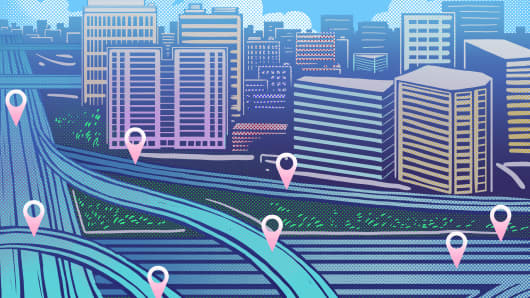Founders: Cheng Wei (CEO), Bo Zhang
Launched: 2012
Headquarters: Beijing
Funding: $29 billion (PitchBook)
Valuation: $56 billion (PitchBook)
Key technologies: Artificial intelligence, machine learning, autonomous vehicles
Disrupting: Public transportation, taxi and limousine services
It has to mean something when three of the top five companies on the 2018 Disruptor 50 list are ride-hailing companies. Making its debut at No. 4 (after No. 2 Uber and before No. 5 Lyft) is China's Didi Chuxing, which has established a dominant position in its home country. The company claims to have more than 450 million registered users and more than 21 million drivers in more than 400 cities within China. That adds up to more than 30 million rides a day — about twice as many as Uber, Lyft and all the other car-hailing apps combined. Didi's major backer is Softbank, the Japanese technology conglomerate that is also a big investor in Uber. So far, the company has raised an astounding $20 billion — $265 million of which came in early April from Mirae Asset Financial. The company claims it has turned a small profit.
Read More: FULL LIST: 2018 DISRUPTOR 50
In April it was reported that Didi was holding talks about launching an $80 billion IPO. It could go public as early as the second half of 2018.
Like Uber, Didi is also making big bets on autonomous driving. It has been testing self-driving cars in China for months and in early March announced it was helping to design cars with Beijing automaker BAIC. And amidst waves of rumors, the company officially entered (again, like Uber) the food-delivery space. In early April it launched the service in Wuxi, a city in the southern Jiangsu province. It plans to roll it out to other cities soon.
Although Didi is transparent in its imitation of Uber, they are not worried the U.S.-based ride-hailing company will steal its customers. In 2016 the Chinese company did away with its rival by buying Uber's Chinese business. Then early last year it opened an R&D facility in Mountain View, California — Uber's backyard — and it has launched services in Mexico this year.

























































